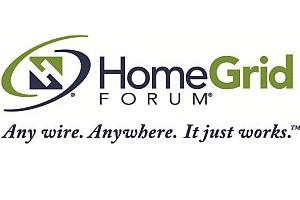Key to interoperability for smart homes and smart grid is standardisation and certification of devices, says HomeGrid Forum

Livia Rosu of Total Telecom Congress
‘The key to consumer connectivity needs and interoperability is standardisation and certification of devices’ – that was the message given by the marketing chair of HomeGrid Forum, Livia Rosu at this year’s Total Telecom Congress.
Speaking at the event roundtable with consumers and operators, “Living a smart lifestyle in a smart city: moving towards a smart connectivity future” which took place in London at the end of October, Livia Rosu explained: “As consumers demand faster and higher-capacity Wi-Fi throughout the entire home, mesh networks are growing in popularity to deliver uniform coverage. To be able to ensure full Internet of Things (IoT) coverage and quality user experience, demand for G.hn backbone is only going to grow”
“The G.hn specification for home networks has long been of interest due to its ability to operate over different media, such as telephone wiring, power lines and coax cables,” continued Rosu. “As a result of this technology, consumers are now able to seamlessly extend the reach of their home networks ensuring 100% reliable coverage. The role of the self-organising networks is recognised to be crucial.”
The operators roundtable in London followed on from Rosu chairing a panel at this year’s Broadband World Forum in Berlin, entitled: ‘Wi-Fi Mesh home networks powered by G.hn backhaul technology: Standards to support carrier-grade deployment’. Comtrend and devolo, members of the HomeGrid Forum, participated in the Panel discussion to explain how G.hn extenders allow the Wi-Fi radio to use 100% of its air time or bandwidth to connect to endpoints and ensure highest performance
As the IoT space within the consumer sector becomes increasingly crowded, backbones inevitably become key. G.hn technology provides connectivity over any existing wire and so can become the universal IoT backbone. The technology can be deployed immediately without any additional changes or upgrades to the infrastructure.
Rosu added: “G.hn can extend Wi-Fi coverage and performance throughout homes, businesses, and MDUs, to support the ultimate broadband experience. It also creates a true hybrid network over any available medium – something that is increasingly important as the industry shifts towards next generation home networking and the rise of Wi-Fi home mesh networking. G.hn extends connectivity further than any other technology on the market and is the fastest path to a wireless euphoria. Operators are shifting from Wi-Fi only to Wi-Fi mesh networking enabled by G.hn wired backbone for the most robust and reliable connectivity.”

To deliver this technology and to ensure interoperability, Rosu also stated that the role of standards, and standards organisations, is now more important than ever. She also added that there are various reasons why standards are essential for the technology and telecommunications industries.
Namely that they ensure and maintain reliable requirements across industry segments, which are of benefit to consumers, businesses, and manufacturers alike. “It is for this reason that G.hn portfolio of use cases has been extended to address smart building and smart grid applications”.
Earlier this month HomeGrid Forum was invited to participate in the European Utility Week Vienna event where Livia Rosu explained the need for industry partnerships between utilities, telcos, technology providers and integrators, unifying their development forces to provide reliable broadband connectivity for smart homes and future proof smart grid.
The implementation of a standard-based broadband solution like G.hn that can ensure multi-vendor interoperability, open platforms and easy integration into a wide range of IoT/ Smart Grid infrastructure equipment, will reduce time to market for all stakeholders and will leverage existing investments, as currently used in the broadband carrier, consumer and grid segments.
Livia Rosu also underlined the need for standards as they help ensure interoperability: “This will be crucial in the future, as technologies increasingly interact. This shift towards an ecosystem composed of multi-vendor interoperable technologies will solve the problem of expensive upgrades for all network topologies. G.hn technology can also help utilities to get ready for the vertical service models in a broadband service managed network.”
Comment on this article below or via Twitter @IoTGN
